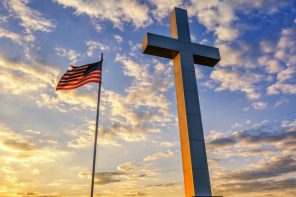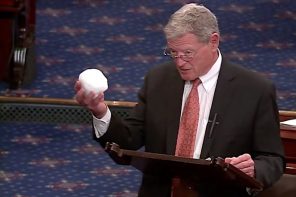Like many others, I feel like the character in The Poseidon Adventure singing “there’s got to be a morning after, if we can make it through the night.” It became a number one hit in late summer 1973 just as the Watergate scandal was cresting and taking Richard Nixon down in the storm.
My first reflections landed squarely on the electoral college: for the second time in 16 years, the winner of the popular vote (it appears as of Wednesday morning) will lose the election: Gore in 2000, and Clinton this time. The religiously-tinged suspicion of the founding fathers towards the unreliable electorate, one that was to be kept in check by the balance of the electoral college system, has instead awarded the White House to the candidate who ran the most demagogic campaign imaginable. So there’s that.
And there’s the evangelicals. Neil Young and Evan Derkacz already have covered the big news: the astonishing support of evangelical voters for Trump, surpassing that of George W. Bush, and defying the pleas of certain evangelical leaders to make a #NeverTrump stand. White evangelicalism and white nationalist theology remain a potent brew, provided their voters can be mobilized in large numbers. These are mostly not the white working-class voters whose legitimate grievances Evan discusses here, but more middle-class folk clearly fine to accept the mess of Trump porridge. They were not, to the same degree, in 2012, for an explicitly and articulately religious candidate (Mitt Romney). They were, this time, for the candidate who played on the lower frequencies of the white American public.
But I live in one state, Colorado, where Hillary Clinton actually outperformed polling expectations, and won by over two points. (New Mexico appears to be the only other state where Clinton’s polling numbers were under her actual totals. Everywhere else, it was the opposite, with wildly divergent projections versus actuals). Most of the West, excluding the Mormon belt, gave Clinton large margins of victory—even the historically Republican state of Nevada.
Just as significantly, Senator Michael Bennet, the incumbent Democrat, easily defeated what could have, and should have, been a formidable challenger: Darryl Glenn, an ex-Air Force veteran, conservative black Republican who ran as a constitutional conservative. He lost by about three points to Bennet, a rather bland technocrat who appeared initially to be a possible pick-off target. Some of this was due to the power of incumbency, but in a “change” election, incumbency can be a burden. More of it, I think, can be explained by the fact that the Republican National Committee, and the usual lineup of Koch-funded PACs, abandoned Glenn from the outset, leaving him with no money and no offensive line for his ground game.
Earlier this century, the West powered the Sunbelt conservatives, the Reagan revolution and the megachurch industry. Now, large portions of it seem to be separating again, this time in the other direction, both religiously and politically.




